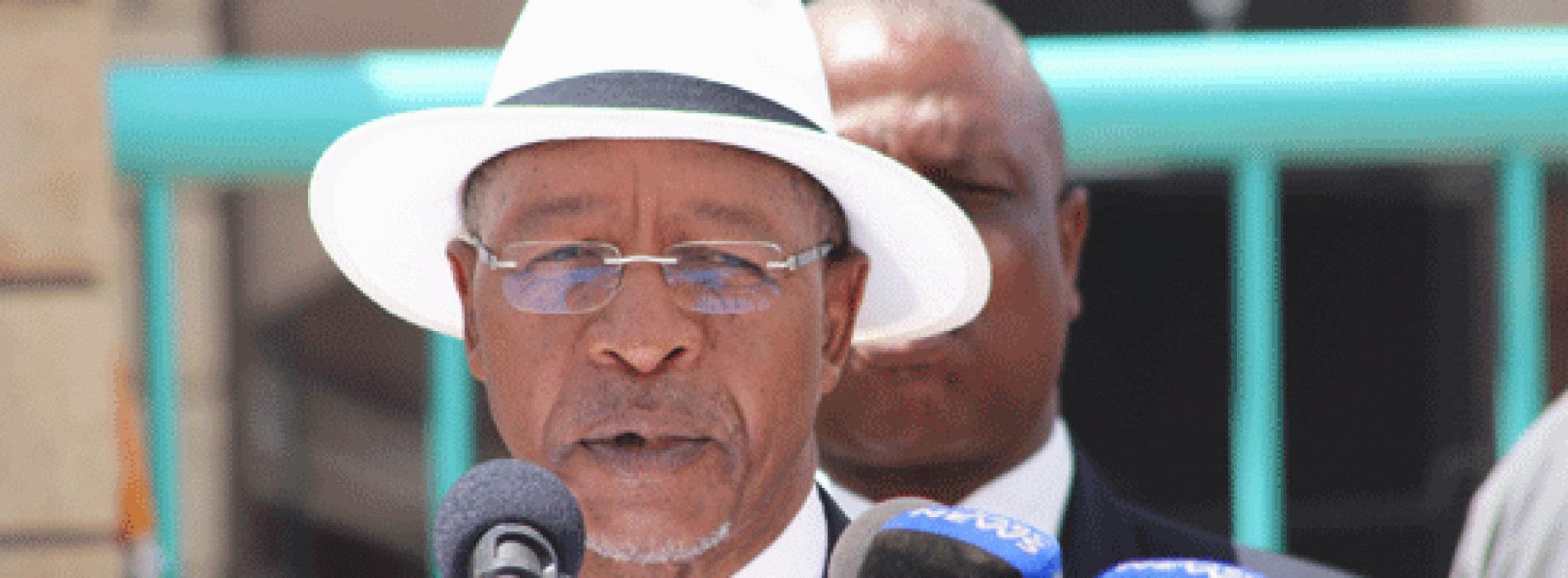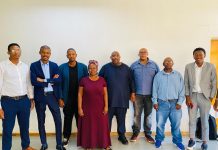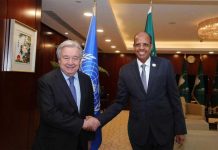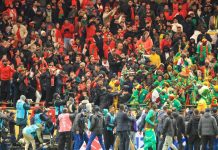Africa-Press – Lesotho. Some of the causes of political instability in Lesotho are related to the fact that secure livelihood is very difficult for majority of Basotho because Lesotho is a small country with limited natural resources.
Against this background, allowing Basotho to gain access to citizenship of South Africa and other countries has been touted as one of the ways in which socio-economic well-being can be secured for majority of Basotho, and, thereby, political stability established in the country.
At present, Section 41 of Lesotho’s Constitution bars citizens of Lesotho from simultaneously holding citizenship of Lesotho and that of another country. This paper discusses legal and political issues pertaining to multiple-citizenship in Lesotho.
Primarily, the paper looks at the legal position regarding multiple-citizenship in Lesotho; the stance of Lesotho’s political elites on the subject; and examines the potential of multiple-citizenship to reduce political instability in Lesotho.
Background
Lesotho is a small overcrowded country with a small economy that cannot support the well-being of society as a whole. Majority of the population are concentrated on the country’s ecological zone known as the ‘lowlands’, a small, arable but agriculturally-marginal and intensively cultivated strip of land that constitutes 17 percent of the country’s land mass.
Seventy-four per cent of the country’s topography comprises of the ‘foothills’ and ‘highlands’ where even more reduced capacity to grow food combines with other conditions, such as harsh climate and other inhospitable conditions, to make human habitation very difficult.
Countrywide, in areas that are habitable, population density is estimated at 59 inhabitants per square kilometre. Both under colonial rule (1868-1966) and after independence, economic survival has greatly depended on, and benefited from proximity with, more endowed South Africa.
For society in general, Basotho’s ability to enter South Africa legally and illegally in search of jobs and necessities has provided a lifeline to many households in Lesotho.
For the Lesotho state, an old South Africa-dominated Customs Union, established during colonial rule, has been a major source of income and basis of national budgeting. On both fronts, however, changes have occurred; two of these are worth mentioning.
First, Basotho’s ability to move freely into South Africa in search of jobs has become increasingly restricted, as South Africa tightened its immigration controls, over the years.
Second, Lesotho state’s income from the Customs Union, which contributes 44% of public spending,1 has fallen by close to 45%, from 29.2% of GDP, in 2014/2015, to 16.4% of GDP, in 2016/2017.2
This unfolding situation has contributed significantly to economic insecurity in Lesotho.
Restrictions on Basotho’s cross-border movement into South Africa has increased their inability to access employment in South Africa, and has, thereby, increased unemployment in Lesotho, and intensified struggles for decent livelihood.
For many Basotho, the option has been to cross illegally, or to cross legally but end up violating South Africa’s immigration laws by overstaying, or working illegally.
Cases of South African police’s arrests of Basotho found residing and working illegally in South Africa are quite frequent. They are sources of state-to-state tensions between governments of Lesotho and South Africa. The view of South African government officials is that, Lesotho government do not do enough to help South Africa enforce its immigration laws.
For their part, Lesotho government officials have to make representations, to the South African government, on behalf of Basotho who complain about ill-treatment and harassment, including deportations, by South African immigration officials.
Success and failure in struggles for power in Lesotho — which have increased in intensity, since 1993 — are, in large part, dependent on, first, the political elites’ access to public resources which they use to dispense patronage, and, second, on availability of an electorate rendered amenable to patronage because of its economic circumstances.
On the one hand, dwindling income from Customs Union has meant that, the political elites do not have, at their disposal, enough means by which to dispense patronage; on the other hand, increased poverty and unemployment among the electorate has greatly increased the amenability of society to patronage.
This breeds political instability in that, the larger society is easily drawn into the intense struggles for state power between factions of the political elites.
Sections of the larger population participate in these intense fights for state power hoping that victory of the sides they support will guarantee patronage from dwindling state resources.
Crucially, sections of larger society that become drawn into these struggles include elements in groups such as the army, and quasi-militarised groups of youth allied to different political parties and supported by elements in the army.
It is in these ways that, intense struggles for state power that take place within a small section of society — that is to say, the political elite — become generalised throughout larger society and assume character of national political instability.
Because the persistent political instability that results from the economic and political contexts described above is ascribed, at least, in part, to Basotho’s being overcrowded on small, marginal territory with bleak current and future economic prospects, the search for ways of achieving political stability in Lesotho has focussed on areas, including: abolition of immigration controls on the border between Lesotho and South Africa, freedom for Basotho to work in South Africa, and repeal of Section 41 of Lesotho’s Constitution to enable Basotho to acquire citizenship of other countries in order to gain access to economic benefits that can accrue from citizenship of such countries.
This chapter discusses legal and political issues pertaining to multiple-citizenship in Lesotho. Primarily, the paper looks at the legal position regarding, and examines the stance of Lesotho’s political elites on, multiple-citizenship.
Evolution of Citizenship Legislation in Lesotho: Citizenship Legislation as a means to persecute Political Opponents
Among pre-colonial Basotho, bases of senses akin to ‘citizenship’ included membership of, or being born in, or having blood relations with members of, a community that formed a chiefdom; subjecthood to a particular chief; and having rights to territory claimed by that community, and ruled by the particular chief.
In law, the former — sense of belonging based on community and kinship — is called jus sanguinis, or ‘right of blood’; while the latter — that is, a sense of belonging based on birth and other rights to particular territory — is called jus soli, or ‘right to the soil’.
Basotho chiefdoms were small, largely autonomous, and loosely connected to each other by kin and other socio-political ties. In this arrangement, individuals and groups were free to choose which chiefdom they attached themselves to, or territory where they wanted to live.
As in notions of citizenship, as understood today, belonging to a community that occupied a particular territory, under a particular chief, carried with it obligations and rights.
Individuals and groups could not be members of more than one community, or subjects of more than one chief, or enjoy right-to-territory in more than one territory; as a Sesotho saying goes, ‘no-one can be a subject of two chiefs’.
Those who preferred to live in a different territory could easily leave their current territory to go and make a living in another territory, under a different chief, or perhaps, found a new chiefdom.
Equally, individuals and groups who became unhappy under their current chief could easily leave him, and attach themselves to another chiefdom of their choice. In those cases, such individuals and groups lost, in particular, rights to land and resources of land that belonged to the previous community.
This ability of individuals and groups to leave a bad leader for a good leader put limits on the tendency of chiefs to abuse their powers: good chiefs attracted adherents, and bad chiefs lost adherents — or retained their allegiance by incurring costs on means of force by which to secure disgruntled subjects allegiance.
With colonisation, and in typical practices of empires, Basotho were regarded as subjects of the British Empire, and accorded some citizenship rights of the Empire, or the Commonwealth.
These were mainly legal rights, and excluded Basotho from many political and social rights that were availed to European citizens of the Empire in England and in the colonies.
Within the region, modern Botswana, Lesotho, South Africa, and Swaziland were British colonies. For much of the colonial period, the British had a plan by which territories of Botswana, Lesotho and Swaziland were to be incorporated into South Africa. This plan informed much colonial policy-making for the envisaged future relationship between South Africa and the other territories.
It was partly in accord with the incorporation plan that, the British managed a largely relaxed regime of people’s movement and residence rights within the four colonies, which continued for over fifty years after South Africa gained independence under white minority rule, in 1910.
Because of this relaxed regime of people’s movement and residence in the four colonies, where people called home was determined more by where people with whom they had strongest ties lived, than by membership of a nation and a country.
Border restrictions between South Africa and Lesotho were introduced in July, 1963. That gave Basotho a sense of being excluded from South Africa, and, arguably, crystallised a sense of being ‘citizens’ of Lesotho, and not South Africa.
Immediately after independence, Lesotho parliament passed Lesotho Citizenship Act of 1967. The Act was intended to “ . . . make provision, to the extent permitted or required by the Constitution, for the acquisition, deprivation and renunciation of citizenship of Lesotho .
” and “to specify, in relation to persons, by what date those persons shall have done what is required by the Constitution in relation to dual citizenship, and to make provision for related and connected matters.
”5
The 1967 Act described, and allowed, citizenship by naturalisation and by registration.
Beyond this, it seemed to assume jus soli and jus sanguinis citizenship rights; that is, other than those who could acquire citizenship by naturalization and registration, the law recognised, and the state could grant, citizenship rights to anyone born in Lesotho, and anyone with blood relatives in Lesotho could claim citizenship rights in the country.
Applications, or claims, of citizenship could be made on the strength of a male, not female, parent’s citizenship of Lesotho. Passage of the Act can be seen more as part of process of acquisition of trappings of nation-statehood at independence, and less as an instrument to deal with any political, social or economic problem that the new country was facing.
The 1967 Act was succeeded, only four years later, by Lesotho Citizenship Order No. 16 of 1971. The 1971 Order was substantially similar to its predecessor.
Coming, as it did, in the aftermath of Chief Leabua Jonathan’s seizure of power by force, and his suspension of the Constitution, after losing elections of January, 1970, the Order seems more to have been intended as a means to circumvent constitutional requirements that the government needed to meet in its actions regarding recognising, granting, or depriving citizenship rights.
Importantly, the Order made it possible for the regime to persecute its political opponents under the catch-all phrase ‘national security’. Lesotho’s Citizenship Legislation and Multiple Citizenship
A primary relationship that states and rulers seek to establish and maintain with their subjects and citizens is one in which states and rulers exercise complete and undivided sovereignty over their citizens and subjects.
However, objective political and economic conditions of human existence have always been such that, individuals and groups often find themselves having to break away from oppressive rulers, or to seek making a living in other ‘greener’ territories.
Attempts may be of a complete break, in which individuals and groups permanently renounce territorial rights and rights of membership to a particular nation, or community; or an incomplete break in which individuals and groups maintain, or wish to maintain, rights in previous territory and previous community.
This tension—between states and rulers seeking to establish and maintain complete and undivided sovereignty over subjects and citizens, on the one hand, and individuals and groups seeking to break away, partly or completely, and establish themselves in politically less oppressive, and economically more beneficial circumstances, on the other — has a long history and continues in modern times.
Responses of states and rulers have varied. Some have hung steadfastly to laws that prohibit multiple citizenship; while some have made adjustments that give ‘non-citizens’ varying degrees of rights, from outright citizenship, at one extreme, to limited rights of movements, civic participation, and socio-economic rights, at another.
Such is the case, for example, in the European Union, whose member countries practise what is called disaggregated citizenship. Lesotho’s Citizenship Act of 1967 made reference to ‘dual citizenship’ with an intention to eliminate it.
Sections 4, 5 and 7 of the Citizenship Order of 1971 required applicants of Lesotho citizenship to be “willing to take an oath of allegiance”, and to be “willing to renounce any other nationality or citizenship” that they might be enjoying at time of applying for citizenship of Lesotho.
With intention to prohibit dual citizenship, Section 41(1) of Lesotho’s 1993 Constitution clearly states that “[a]ny person who… is a citizen of Lesotho and also a citizen of some country other than Lesotho shall cease to be a citizen of Lesotho… unless he has renounced his citizenship of that other country, taken the oath of allegiance…”9
Lesotho Political Elites’ Attitude Towards Multiple Citizenship
There are not clearly-stated reasons why Lesotho political elites — writers of the Constitution, legislators, cabinet ministers, etc.
— are opposed to dual citizenship.
It can only be surmised that, the bases for their objections include fears of state’s loss of complete rights to its citizens and, perhaps, issues of national security.
However, as with Citizenship Order of 1971, it can be said with certainty that, citizenship legislation enables whoever is in power to persecute political opponents.
Thus, when, in 2007, officials of the government of Lesotho sought to deport Adam Lekhoaba — a broadcaster who had run programmes critical of the ruling party — they accused him of both being an alien and of causing political instability in the country.
This section of the paper discusses some of the publically-stated concerns against changing Section 41 of the country’s Constitution with a view to allow the holding of Lesotho’s citizenship with that of another country, or other countries.
Being words by individuals who write and enact Lesotho’s laws, and rule the country, the statements reported here, and the attitudes of those who made them towards multiple citizenship, can be taken as some explanation of prohibition of multiple citizenship in Lesotho’s Constitution and subordinate laws.
One of the most powerful voices that have publically expressed fears and concerns about changing Section 41 of Lesotho’s Constitution to make dual citizenship possible is that of Dr Pakalitha Mosisili, several times Prime Minster of Lesotho.
Dr Mosisili has expressed concern that, changing Section 41 of Lesotho’s Constitution will make it possible for South Africans to vote in Lesotho’s national elections.
As can be seen, below, he persuades his followers to join his opposition to dual citizenship by invoking the ‘spectre’ of Lesotho’s incorporation into South Africa. The rhetoric lacks either any nationalist substance, or logic, of any type.
Speaking during a brief period when he was out of power, in April 2013, he told his followers:
There are 46 million people in South Africa comprising Basotho, Shanganis and Zulus.
If we were to allow for dual citizenship, they would swallow us raw because they will also seek Lesotho citizenship . . . This is one way this… government is intending to hand us over to South Africa.
I therefore urge you people to be careful, very careful. Beyond glib references to a “ . . . danger lurking on the horizon . . . ” if Lesotho allows dual citizenship; equating dual citizenship to “ .
.
. selling out Lesotho to South Africa . . .
”; and sowing fears of Lesotho being “ .
swallowed by South Africa”, politicians opposed to dual citizenship, such as Dr Mosisili, are not able to state clearly what is wrong with dual citizenship.
Contrary to their views, participation of South Africans who hold Lesotho’s citizenship in Lesotho politics may, indeed, be a good thing for Lesotho democracy in that, Lesotho’s politicians and their parties will have to think about an electorate with a different political consciousness in their attempts to gain power.
Anyhow, for anyone to vote in Lesotho’s elections they have to be citizens. As things stand, it is more likely that people from Lesotho will apply for South African citizenship than South Africans apply for citizenship of Lesotho.
Seemingly, this opposition to dual citizenship is not limited to Lesotho’s political elites but it exists among other sections of Basotho society. Thus, in 2013, a survey conducted for AfroBarometer found that “ .
. a majority of survey respondents — 60% — said people do not have a right to be citizens of Lesotho and a second country.
” Significantly, however, the survey found that, of the six southern African countries where similar surveys were conducted, even at 33%, support for dual citizenship in Lesotho was the highest, surpassing that of the next country, South Africa, by ten percentage points.
Of the other countries, Zimbabwe scored 22%, Namibia 20%, Botswana 13%, and Malawi 11%. Even more significant, perhaps, is the fact that, research evidence has been presented showing various levels of support for an even more contentious idea of incorporation.
According to this research,
. . .41% of Basotho migrants continue to favour integration. Within Lesotho, 46% of respondents also support incorporation.
But residents in the North appear most interested in the prospect of becoming part of South Africa, in contrast with the inhabitants of the Maseru region (56% against it), where the interest of many lies in preserving the status quo.
Some of the opposition to the idea of dual citizenship, such as that attributed to Prime Minister Mosisili above, gives the impression that, if the law is changed, all Basotho will be required to apply for dual citizenship from, in particular, South Africa.
First, the changed law would not prescribe countries from which Basotho should apply for dual citizenship. Secondly, and, perhaps, more importantly, changing Section 41 of Lesotho’s 1993 Constitution will not force all Basotho to apply for South African citizenship, or any other country’s citizenship.
Those who will not want to do so will be free to remain with Lesotho’s citizenship alone, and, by doing so, they will not be breaking any law. Majority of Basotho may opt not to apply for dual citizenship, but, like all Basotho, they will enjoy the freedom of choice that will result from removal of constitutional prohibition against dual citizenship.






